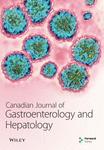Reducing the Risk of Severe Complications among Patients with Clostridium difficile Infection
Abstract
BACKGROUND: The incidence and severity of Clostridium difficile infections are increasing, and there is a need to optimize the prevention of complicated disease.
OBJECTIVE: To identify modifiable processes of care associated with an altered risk of C difficile complications.
METHODS: A retrospective cohort study (with prospective case ascertainment) of all C difficile infections during 2007/2008 at a tertiary care hospital was conducted.
RESULTS: Severe complications were frequent (occurring in 97 of 365 [27%] C difficile episodes), with rapid onset (median three days postdiagnosis). On multivariable analysis, nonmodifiable predictors of complications included repeat infection (OR 2.67), confusion (OR 2.01), hypotension (OR 0.97 per increased mmHg) and elevated white blood cell count (OR 1.04 per 109 cells/L). Protection from complications was associated with initial use of vancomycin (OR 0.24); harm was associated with ongoing use of exacerbating antibiotics (OR 3.02).
CONCLUSION: C difficile infections often occur early in the disease course and are associated with high complication rates. Clinical factors that predicted a higher risk of complications included confusion, hypotension and leukocytosis. The most effective ways to improve outcomes for patients with C difficile colitis are consideration of vancomycin as first-line treatment for moderate to severe cases, and the avoidance of unnecessary antibiotics.




